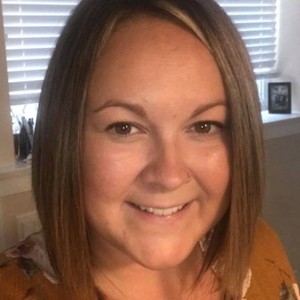
Krystal Glowatski
Krystal Glowatski’s personal connection to the field of restorative justice began with a high-profile crime when she was 11 years old. In 1997, B.C. teenager Reena Virk was fatally beaten by a group of teenagers, among them Krystal’s uncle, Warren Glowatski.
“It was a confusing time for me as a child,” recalls Krystal, who now teaches in SFU’s Restorative Justice Certificate program, “as my parents decided not to tell my brother and me what happened to protect us. While their intentions were good, this left me to grow up with a lot of shame about my family and my identity.”
Reconnecting with Warren a decade later, while he was in prison, Krystal learned about the restorative justice process he was undergoing with the victim’s family. “I learned firsthand how powerful and transformational this mode of justice could be.”
She became so interested in the process that she pursued an honours degree in sociology with a focus on public perceptions of restorative justice. She then earned a master’s in justice studies, and is now pursuing her PhD in criminology focusing on the experience of being related to someone who has committed murder.
“Some might think I am too close to the topic,” says Krystal, “but if anything, I think my personal connection to the subject matter allows me an extra layer of curiosity, a compassionate ear, and a desire to make sure the research is done well, to help make policy changes.”
On top of working on her dissertation, Krystal is currently in talks with police agencies about developing best practices and standards for restorative policing. “There is a lot of excitement right now around restorative justice and policing, particularly with calls to defund police,” she explains. “RJ can certainly be one ingredient to move our justice institutions toward actual just practices.”
As an instructor in the Restorative Justice program, over the years Krystal has seen students from increasingly diverse backgrounds, including social work, education, health care, business, and theologically focused work, as well as parents. “Conflict happens in our lives almost daily…. Taking the certificate program helps people gain skills in conflict transformation,” she says. “These skills are transferable across your work and home life. It doesn’t matter what field you’re in, RJ can be a huge asset to your success.”
When asked what she finds most rewarding about her work in restorative justice, Krystal’s answer is simple—it’s the people:
“I get to meet so many folks from so many walks of life, each who have these incredible lives and histories. I can definitely say I am a better person because of the stories I have had the privilege of hearing and the people I have been honoured to meet.”

